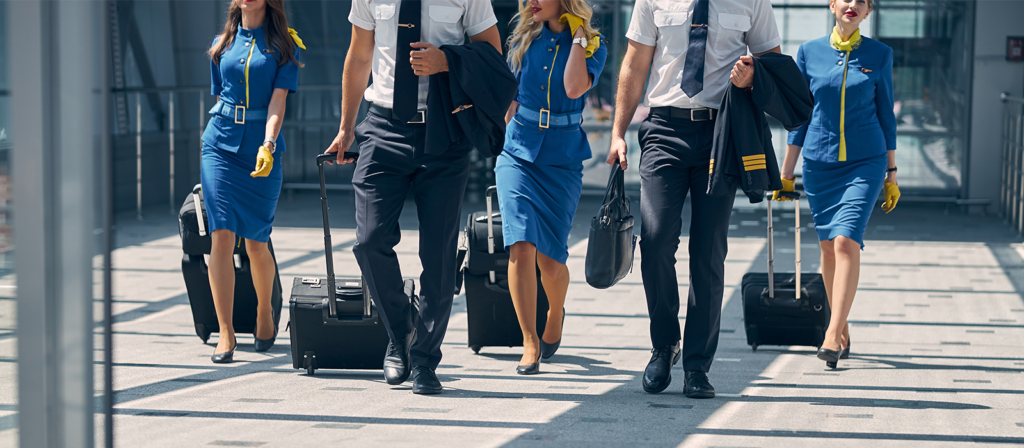Flight Centre Uniform, Travel Group, Booking, Magazine, School 👇🏻⏬

Flight Centre Uniform
“Flight Centre’s uniform stands as a sartorial embodiment of the company’s ethos – professional, approachable, and vibrant. Donning the iconic red and black, Flight Centre’s travel consultants are easily recognizable, their attire symbolizing a blend of the adventurous spirit of travel with the sleekness of modern professionalism. The signature uniform not only instills a sense of unity and pride among the staff but also inspires confidence in customers, who associate the distinguished look with trustworthy and knowledgeable guidance in crafting their travel experiences. Each element, from the crisp shirts to the tailored suits, is carefully chosen to ensure comfort, style, and functionality, reflecting Flight Centre’s commitment to excellence in every aspect of their service.”
Flight Centre Uniform 2023
“In 2023, Flight Centre takes a bold step forward in corporate fashion with a refreshed uniform design that perfectly captures the company’s innovative and forward-thinking spirit. The new ensemble retains the brand’s iconic red accent, while introducing sleek, contemporary lines and a more modern silhouette that speaks to the dynamic nature of travel today. This latest iteration of the Flight Centre uniform not only symbolizes the company’s commitment to staying abreast of current trends but also ensures that its consultants exude a professional yet approachable presence. Designed with the practical needs of a travel expert in mind, the 2023 uniform is both stylish and functional, allowing consultants to represent the brand with confidence and comfort as they guide travelers on their journeys.”
Flight Centre Travel Group
Flight Centre Travel Group is one of the world’s largest travel agency groups, founded in Australia in the early 1980s and now operating a vast network of retail and corporate brands. The group’s presence spans Australia, New Zealand, the Americas, Asia, Europe, the Middle East, and South Africa, making it a truly global enterprise. It has steadily grown to become a leading leisure travel company and a staple for corporate travel management.
With a customer-centric approach, Flight Centre Travel Group offers comprehensive travel services including leisure and corporate travel, travel insurance, visa services, and holiday packages. It prides itself on delivering exceptional customer service and expertise through its team of knowledgeable travel consultants.
Innovation has been at the core of Flight Centre’s growth, evident in its adoption of technology to enhance the customer experience and its investment in marketing strategies that keep it at the forefront of the travel industry.
The group also places a high emphasis on corporate culture and employee satisfaction, often featuring in lists of most admired companies for its workplace environment. The recognizability of Flight Centre’s brand is partially owed to its consistent and professional visual identity, with the travel consultants’ uniforms serving as a notable element of its brand image.
As of my last update in April 2023, the Flight Centre Travel Group continues to adapt and thrive, even as the travel industry faces challenges and changes, such as the need to respond to global events, changing consumer behaviors, and the increasing importance of sustainable travel practices.
Flight Centre Booking
Booking a holiday or a business trip with Flight Centre is designed to be a personalized and straightforward process. Here’s how you can make a booking with Flight Centre:
- Contact a Travel Consultant: You can start by visiting a local Flight Centre store or by reaching out via their website or by phone. Flight Centre prides itself on providing personal service through its experienced travel consultants.
- Discuss Your Needs: Share details about your desired trip, such as destinations, travel dates, budget, preferences, and any other specific requirements you might have. Flight Centre consultants can offer a range of options and advice tailored to your needs.
- Review Options: Your consultant will provide you with various travel options, including flights, accommodation, tours, and other travel services. They’ll help you understand the benefits and costs associated with each option.
- Customize Your Booking: Flight Centre’s service is highly customizable. Whether you’re after the best value, the most direct flights, or special accommodation, your consultant will tweak the offerings to suit you.
- Confirm and Pay: Once you’re happy with the itinerary, your consultant will go ahead and secure the bookings for you. You’ll receive details about payment options and deadlines. Flight Centre may offer options to book now and pay later, as well as travel insurance plans.
- Receive Your Itinerary: After the booking is confirmed and the payment is made, you’ll receive a detailed itinerary with all your trip information and necessary documents.
- Pre-Departure and On-Trip Support: In the lead-up to your departure, you can contact your consultant for any last-minute questions. During your trip, Flight Centre typically offers support for any unexpected travel issues.
- Post-Trip Follow-Up: Often, after your trip, Flight Centre consultants will follow up to ensure everything went as planned and to gather feedback on your experience.
Keep in mind that booking procedures may vary slightly depending on the country you’re booking from and the current health guidelines affecting travel policies. Flight Centre’s online platform also allows for some self-service booking capabilities if you prefer to arrange your travel without direct consultant interaction. Always check the latest travel advisories and restrictions before planning a trip, especially in light of the dynamic situation caused by the COVID-19 pandemic.
Flight Training Magazine
“Flight Training Magazine” is a publication dedicated to aviation education, usually catering to student pilots, certified pilots, flight instructors, and those who are enthusiastic about flying. It provides a plethora of information ranging from pilot training techniques, flight school listings, safety tips, aviation technology updates, career advice for aspiring commercial pilots, to personal stories from pilots about their flying experiences.
Typical content in such a magazine would cover:
- Flight Training Tips: Articles and columns that give insights into effective methods for both students and instructors to maximize their training.
- Aircraft Reviews: In-depth looks at different types of training aircraft, including their flight characteristics, maintenance requirements, and new models entering the market.
- Pilot Safety: A critical aspect of any aviation publication, providing updates on safety protocols, accident analysis, and best practices to ensure safe flying.
- Technology Updates: Information on the latest in avionics, simulators, and other technologies that are revolutionizing how pilots train and fly.
- Regulatory Changes: Updates on FAA regulations and other aviation authority guidelines that impact pilot training and certification.
- Career Insights: For those looking to transition from training to a career in aviation, advice on job hunting, interview techniques, and industry trends.
- Personal Narratives: First-person accounts from pilots about memorable experiences in the cockpit, which can be both educational and inspiring for readers.
The magazine would typically have a mix of technical articles, human interest stories, educational columns, and regular features on career development in aviation. For specific articles, issues, or subscriptions, it’s best to look up the magazine’s official website or contact its customer service directly.
Phoenix Flight School
Phoenix, Arizona, is home to a variety of flight schools due to its ideal flying weather and clear skies for most of the year. Flight schools in Phoenix offer training for various levels of pilots, from those just looking to get their private pilot license to those wanting to pursue a career as a commercial pilot. Here are some general steps you might take if you’re considering enrolling in a Phoenix flight school:
- Research Flight Schools: Look for flight schools in the Phoenix area. You can start with an online search or visit local airports and ask for recommendations.
- Consider the Type of Training: Decide what kind of training you want. Are you interested in recreational flying, or do you want to become a professional pilot? This will determine the type of program you’ll enroll in.
- Visit the Schools: If possible, visit the flight schools you’re interested in. This will allow you to meet the instructors, see the facilities, and check out the aircraft you would be training in.
- Ask About Certifications: Make sure the school is certified by the Federal Aviation Administration (FAA). This certification ensures that the school meets safety and education standards.
- Inquire About Programs: Flight schools offer various programs, including private pilot, commercial pilot, instrument rating, and flight instructor certificates. Some schools might also have accelerated programs.
- Look at Fleet and Facilities: The quality of the aircraft and the maintenance records are essential. Also, check if they offer simulators or other training aids.
- Consider Cost and Financing: Flight training can be expensive, so it’s important to understand the costs upfront and whether the school offers financing or scholarships.
- Check Reviews and Outcomes: Look for reviews from former students and find out what kind of success rate the school has in terms of graduates moving on to careers in aviation.
- Understand the Commitment: Flight training is a significant time investment. Ensure you are clear about the duration of the courses and the time commitment required.
- Explore Job Opportunities: Some schools have connections with airlines or other aviation-related companies, which can be beneficial for your future employment.
In Phoenix, you may find schools that cater specifically to certain demographics, like veterans, or schools that have partnerships with colleges for aviation degree programs. When choosing a flight school, it’s essential to consider your long-term goals and how the school aligns with these objectives.
UAV Flight School
Unmanned Aerial Vehicle (UAV) flight schools offer specialized training for piloting drones or UAVs, which are increasingly used across various industries for purposes such as aerial photography, surveying, search and rescue, agricultural monitoring, and more. Attending a UAV flight school is essential for those looking to become professional drone pilots, as it provides the necessary skills and certifications to operate UAVs safely and legally.
Here’s what you can typically expect and what to consider when looking for a UAV flight school:
- Certification Courses: Most countries require UAV operators to have some form of certification. In the United States, for example, pilots must pass the FAA Part 107 test to fly drones commercially.
- Curriculum: A comprehensive UAV flight school should offer a curriculum that covers not only practical flying skills but also theoretical knowledge including aerodynamics, weather, UAV laws, airspace regulations, and risk management.
- Hands-On Training: Practical, hands-on flight training is crucial. Look for a school that provides ample flight time under the guidance of experienced instructors.
- Simulator Training: Some schools offer simulator training, which can be a cost-effective and safe way to practice flying in various conditions and environments.
- Industry-Specific Training: Depending on your career goals, you may want a program that offers training specific to certain industries, such as precision agriculture, real estate, or public safety.
- Equipment Training: Since UAVs come in many different sizes with various capabilities, a school that provides training on a wide range of equipment is beneficial.
- Insurance and Legal Guidance: Understanding UAV insurance options and legal requirements is important for professional pilots. Some flight schools may offer courses or advice in these areas.
- Post-Certification Support: After you become certified, ongoing support from your flight school can be valuable. This might include job placement services, networking opportunities, or advanced training courses.
- Flexibility: If you have other commitments, look for a school that offers flexible scheduling or online course options.
When choosing a UAV flight school, it’s also important to verify the credentials of the instructors and the school’s accreditation status. Researching reviews and testimonials from former students can provide insight into the quality of training provided. Lastly, since the drone industry is rapidly evolving, selecting a school that stays up-to-date with the latest technology and regulations is crucial.



